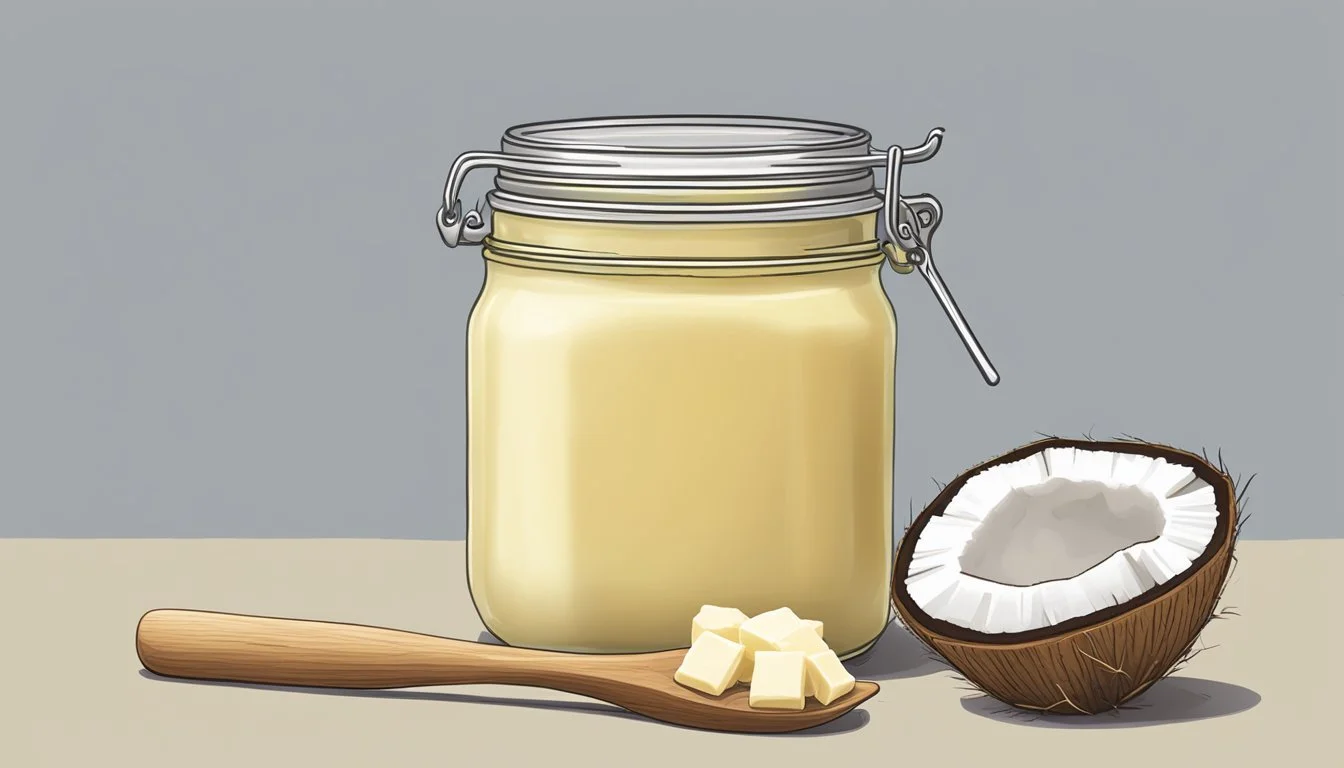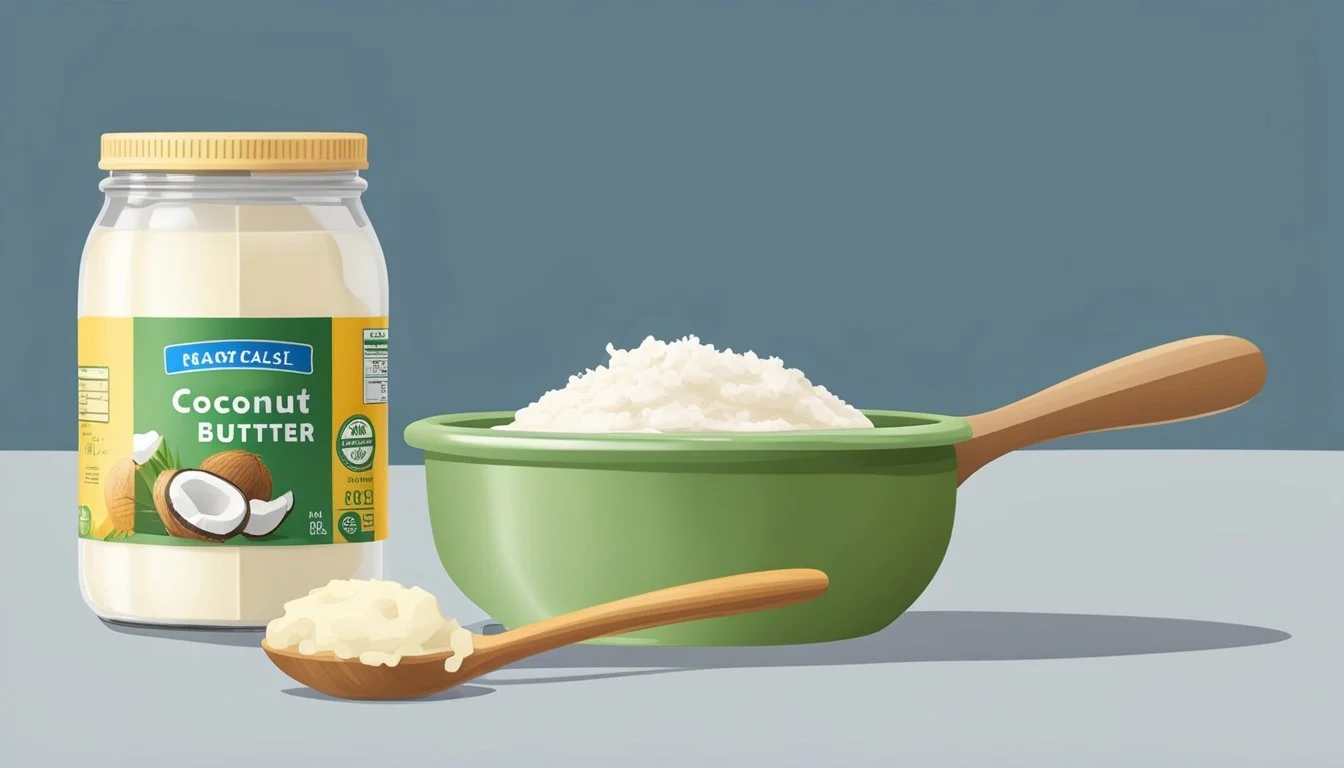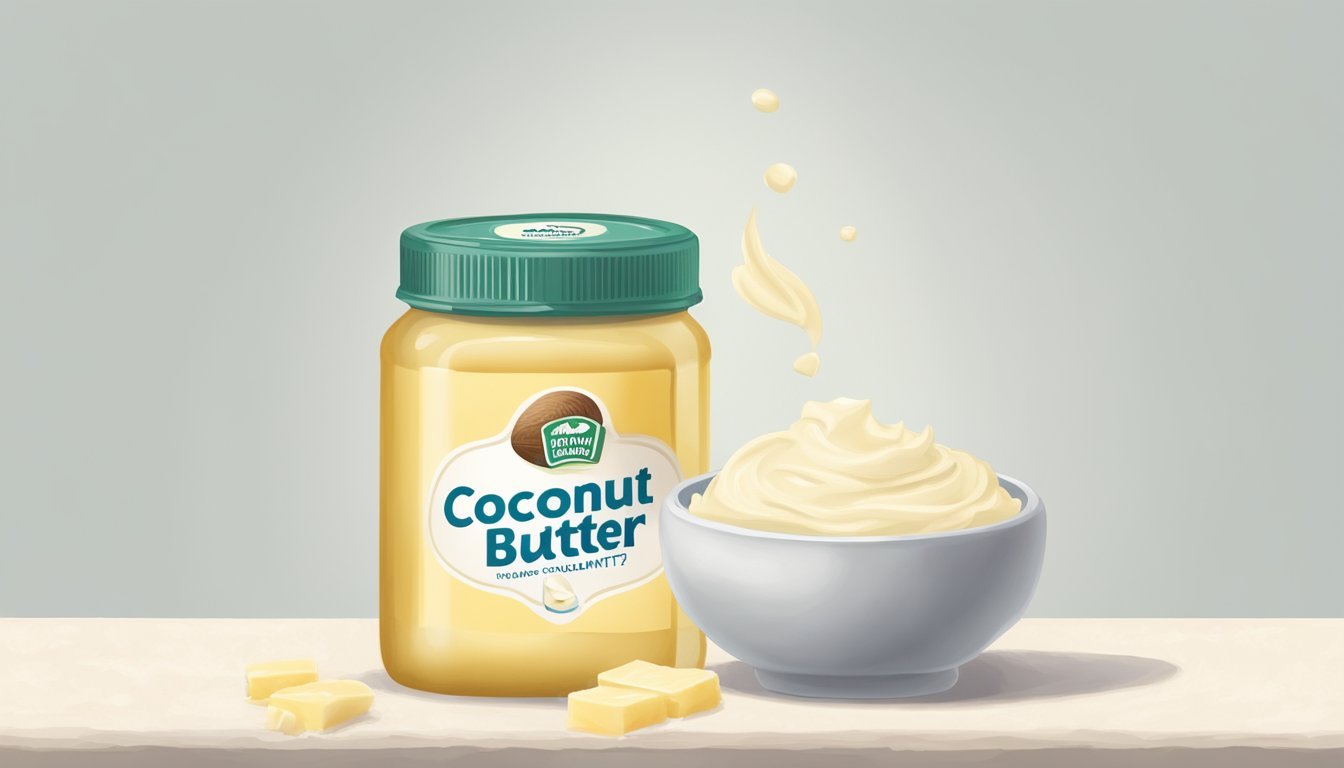Is Coconut Butter a Healthy Alternative to Dairy Butter?
Understanding the Nutritional Benefits
Coconut butter is often considered a viable substitute for dairy butter among those seeking plant-based or lactose-free alternatives. Made from the meat of coconuts, this spreadable substance retains the nutritional profile of its source, offering a different set of benefits and drawbacks. It provides a tropical flavor along with nutrients not found in dairy butter, such as fiber and minerals, which appeals to health-conscious consumers exploring non-dairy options.
However, it's important to note that while coconut butter is free from dairy, it is still high in calories and saturated fats. The impact of saturated fats on health has been debated, with some studies suggesting a potential link to heart disease. Consequently, moderation remains key, as with any fat source. Interested individuals must also consider the broader nutritional context of their diets and personal health needs when deciding if coconut butter is the right choice for them.
Understanding Coconut Butter
Coconut butter is a spread made from the flesh of coconuts. It is an alternative to dairy butter and is composed of both coconut oil and finely ground coconut meat.
Coconut Butter Composition
Coconut butter includes the oil and fiber from the coconut flesh, yielding a creamy texture with a mild, sweet flavor. Unlike coconut oil, which is extracted from the coconut and is purely fat, coconut butter retains more nutrients because it is made from the whole coconut. Thus, it contains:
Saturated fats: A significant portion of its fat content is saturated.
Healthy fats: These are thought to contribute to good cholesterol levels.
Fiber: It has a notable amount of dietary fiber due to the inclusion of coconut meat.
Minerals: Coconut butter provides minerals such as manganese, copper, iron, magnesium, and zinc.
Coconut Butter vs. Dairy Butter
Coconut butter and dairy butter differ greatly in their composition and health impact:
Source: Coconut butter is plant-based, whereas dairy butter is an animal product.
Saturated fat content: Both contain high levels of saturated fats, but coconut butter's fats come from medium-chain triglycerides (MCTs) that some studies suggest may be metabolized differently.
Cholesterol: Dairy butter contains cholesterol, contributing to its impact on LDL cholesterol levels, while coconut butter has no cholesterol.
Nutrient diversity: Coconut butter can offer additional nutrients like fiber and certain minerals that are not present in dairy butter.
When considering coconut butter as a substitute for dairy butter, one should take into account not just the flavor and culinary uses but also these nutritional differences.
Health Considerations
When considering coconut butter as a substitute for dairy butter, it's essential to scrutinize its nutritional profile, particularly in terms of saturated fat content, cholesterol levels, and its potential impact on heart health and inflammation.
Saturated Fat Content
Coconut butter is notable for its high saturated fat content. Typically, coconut butter contains about 60% saturated fat, which is considerably higher than the 51% found in regular butter. High intake of saturated fats is often linked to elevated cholesterol levels, which can increase the risk for heart disease.
Cholesterol Levels and Heart Health
Unlike dairy butter, coconut butter contains no cholesterol, making it a plant-based option for those managing their cholesterol intake. However, the relationship between saturated fat and heart health is complex. Despite being cholesterol-free, the high saturated fat in coconut butter might still influence the body’s cholesterol levels, necessitating moderation in its consumption for individuals concerned with heart disease.
Impact on Inflammation and Disease
Studies on coconut oil, which shares a similar fatty acid profile with coconut butter, have suggested mixed results regarding inflammation. Some research indicates potential anti-inflammatory properties, while others suggest no significant effect. The broader implications for disease prevention remain unclear, and it's important to understand that no single food item is a panacea for inflammation or associated diseases.
Dietary Benefits of Coconut Butter
Coconut butter offers specific health advantages, especially for those seeking lactose-free and plant-based dietary options. Packed with certain nutrients, it serves as a versatile and enriching addition to various diets.
Advantages for Lactose Intolerant Individuals
For individuals with lactose intolerance, coconut butter is a dairy-free alternative to traditional butter, eliminating the discomfort associated with lactose consumption. It provides a rich, creamy texture similar to that of regular butter, thus making it easy to incorporate into their diets without gastrointestinal distress.
Inclusion in Plant-Based Diets
Those adhering to a plant-based or vegan diet often seek healthful alternatives to dairy products. Coconut butter fits well within these diets due to its plant-based composition. Its fiber content, including approximately 2 grams per tablespoon, contributes to a feeling of fullness and supports digestive health. Additionally, coconut butter contains beneficial fats and is a source of essential minerals such as iron and magnesium, which are crucial for overall wellness.
Culinary Uses
Coconut butter offers a diverse range of applications in the kitchen, particularly for those seeking plant-based alternatives. It serves as both a foundational ingredient in vegan baking and a spreadable option.
Cooking and Baking With Coconut Butter
When it comes to baking, coconut butter can replace dairy butter or oil. Its creamy texture enriches cookies, cakes, and muffins, ensuring a rich flavor profile. In vegan butter creations, coconut butter serves as the base, adding stability and consistency to dishes. It can also be a key ingredient in buttercream frosting, offering a smooth, decadent finish without the use of dairy.
Baking Applications:
Cookies, cakes, muffins
Vegan pastries
Buttercream frosting
Spreading and Topping Alternatives
Spreading coconut butter on toast or pancakes provides a flavorful, dairy-free alternative to traditional butter. Its native sweetness and texture make it a delectable topping without needing additional sweeteners. As a spread, it is not only a healthier option but also caters to those following stricter dietary regimens.
Spreadable Uses:
Toast toppings
Pancake layers
Alternative to margarine or dairy spreads
Comparing Butter Substitutes
When evaluating butter substitutes, it is essential to consider both nutrition and culinary use. These alternatives can vary widely in taste, texture, health benefits, and cooking properties.
Plant-Based Butter Alternatives
Plant-based butters are an increasingly popular choice for those looking to reduce animal products in their diet or are lactose intolerant. Margarine is one of the oldest alternatives to butter, often made from a blend of vegetable oils. It mimics butter's texture and is typically fortified with vitamins. However, some margarines contain trans fats, which are less healthy.
Earth Balance is a well-known brand offering a range of dairy-free spreads that are often based on a blend of oils, including soybean, olive, and palm. These plant-based substitutes aim to offer a similar flavor and melting point to butter, which makes them versatile for both cooking and baking.
Avocado oil and olive oil are two other plant-based substitutes that are preferred for their health benefits. They're both rich in monounsaturated fats, which are considered heart-healthy. Avocado oil has a mild flavor and a high smoke point, making it suitable for high-heat cooking, while olive oil is praised for its robust flavor in dressings and low-heat cooking.
Comparison to Other Fats and Oils
When comparing plant-based butters to other fats and oils, the focus often lies on nutritional content and suitability for different culinary needs.
Fat/Oil Type Health Considerations Suitability for Cooking Butter Substitutes Varied; some are high in saturated fats, while others offer heart-healthy fats. Good; designed to mimic butter's properties. Olive Oil Rich in monounsaturated fats and antioxidants. Excellent for dressings, moderate for cooking. Avocado Oil High in monounsaturated fats, vitamins E and K. Excellent for high-heat cooking and baking.
Coconut butter, not mentioned in the provided search results, has gained popularity as a butter substitute. It provides a rich, creamy texture similar to traditional butter and contains medium-chain triglycerides (MCTs), which are fats with potential health benefits. However, it also has a high saturated fat content, which should be consumed in moderation.
In summary, each butter substitute has distinct qualities and health considerations. Consumers can choose based on dietary restrictions, health goals, and culinary applications.
Environmental and Ethical Considerations
When evaluating coconut butter as an alternative to dairy butter, one must consider its environmental and ethical implications, particularly focusing on the sourcing of materials and the role of certifications in promoting sustainable practices.
Sourcing of Coconut and Palm Oils
Coconut butter often contains not only coconut oil but also palm kernel oil, a closely related product. The extraction of these oils can have significant environmental impacts. Palm oil production is a noted concern, as it can lead to deforestation, threatening biodiversity and increasing greenhouse gas emissions. Certain regions such as Southeast Asia have seen vast tracts of rainforest cleared to make way for palm oil plantations, harming local ecosystems and contributing to climate change.
The Role of Certifications
Certifications can play a critical role in ensuring the ethical sourcing of palm-based products. The Roundtable on Sustainable Palm Oil (RSPO) is an organization that works to certify sustainable palm oil production. They provide guidelines to reduce the negative impacts of palm oil cultivation on the environment and local communities. Companies that display the RSPO certification commit to sourcing palm oil produced without contributing to deforestation or habitat destruction.
Allergies and Intolerances
For individuals with dairy allergies or intolerances, finding suitable dietary alternatives is crucial. Coconut butter, a plant-based spread, serves as an option for those needing to avoid dairy products due to health concerns.
Dairy Allergies and Plant-Based Options
People with milk allergy require alternatives that do not contain milk or milk derivatives. Coconut butter is a viable choice as it is naturally lactose-free and not derived from animal milk, which contrasts with dairy butter that can trigger allergic reactions. Plant-based options extend to other products like non-dairy yogurt, created from coconut, soy, or almond bases, providing a spectrum of substitutes for traditional dairy items.
Nut-Free and Soy-Free Butter Alternatives
Finding butter substitutes can also be a challenge for people with nut or soy allergies. While coconut is classified as a fruit, some with tree nut allergies may still react to coconut products. Individuals need to verify their specific allergenic responses to coconut. For a soy-free alternative, coconut butter is suitable since it does not contain soy, making it a safe option for those avoiding soy and nuts. Additionally, many coconut butter products are gluten-free, ensuring another layer of dietary safety for those with gluten intolerances.
Convenience and Availability
With the rise in demand for plant-based alternatives, coconut butter has become increasingly accessible, offering consumers a convenient option. Availability is no longer an issue, as numerous brands have filled the market with a variety of choices to suit different preferences and dietary requirements.
Shopping for Coconut Butter
Shoppers can easily find coconut butter in the health food section of most grocery stores. Those looking for this dairy butter alternative will also typically find it alongside other plant-based spreads such as those offered by brands like Miyoko's, Wayfare, and Earth Balance Vegan Buttery Sticks.
Miyoko's: Available at specialty health food stores and some larger chains.
Wayfare: Often found in the deli section due to its whipped consistency.
Earth Balance Vegan Buttery Sticks: Commonly located in the butter aisle for convenience.
Brand Variety and Accessibility
The variety of vegan butter brands means that accessibility is high. Consumers can choose from brands like Kite Hill Plant-Based Butter, Melt Organic, and Wildbrine. Here's a quick look at the convenience they offer:
Kite Hill: Known for almond-based products, available in most health-focused grocery stores.
Melt Organic: This brand prides itself on using 'good fats' and is found in many mainstream supermarkets.
Wildbrine: While recognized for fermented products, they offer butter alternatives that are stocked by several retailers.
Other notable companies providing plant-based butter include Fora, Forager Project, Califia, Upfield which produces Flora and Smart Balance. These brands have worked hard to ensure their products are just a short trip away, whether that trip is to a local farmer's market, a supermarket chain, or even an online shopping portal.
The Future of Butter Alternatives
The shift towards plant-based eating and dairy-free products is propelling innovation in butter alternatives. This evolution is characterized by the introduction of new ingredients and the response of manufacturers to consumer health preferences.
Innovation in Plant-Based Butters
The landscape of plant-based butters is witnessing rapid innovation, marked by the emergence of a variety of non-dairy, plant-based ingredients. Nut butters made from almonds and cashews have gained popularity due to their creamy texture and rich nutrient profile. Moreover, advancements in processing have led to the production of butter substitutes that incorporate pea protein and sunflower lecithin to achieve a consistency similar to traditional butter. These innovations also explore the usage of faba bean protein, offering an allergen-free alternative. The use of almond oil and canola oil in blends provides the necessary fats, while maintaining a favorable nutrition profile.
Consumer Trends and Market Growth
Consumer demand for healthier, dairy-free products is on the rise, fueling market growth in butter alternatives. Brands are responding by developing spreads featuring superfoods such as avocado and leveraging the popularity of Greek yogurt to create products lower in fat and higher in protein. Additionally, products like hummus and Milkadamia—a spread made from macadamia nuts—illustrate the diversification within the category as companies aim to meet the diverse dietary needs and preferences of their customers. This trend is not only limited to niche markets but is scaling up, with forecasts suggesting significant growth in the plant-based butter market sector.








